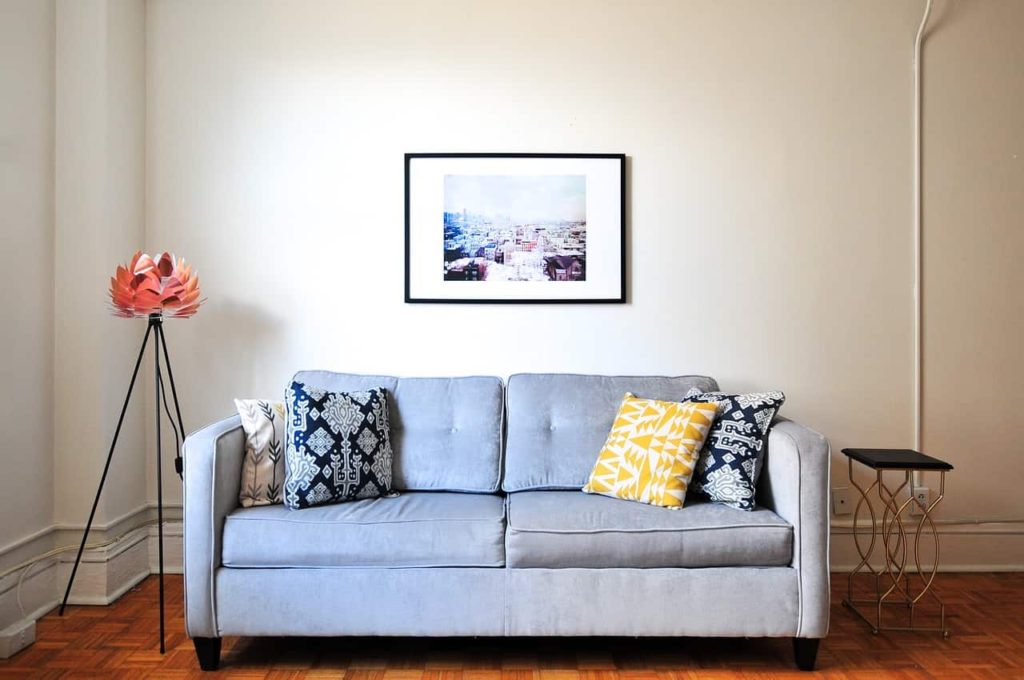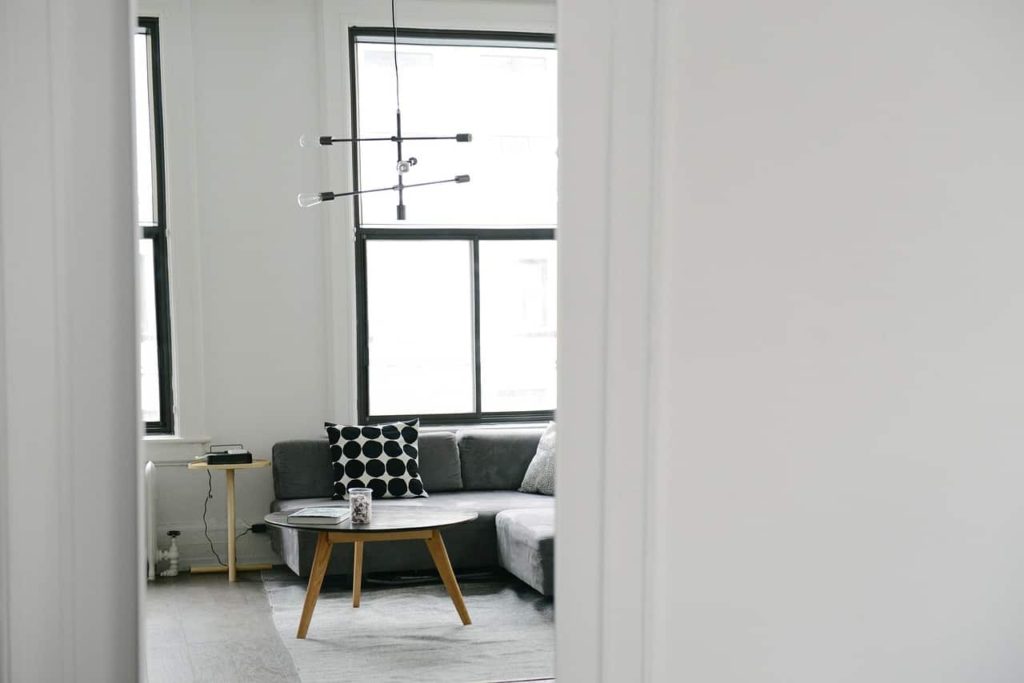Making the payments on your dream home shouldn’t keep you awake at night. That’s why smart homeowners always ask “How much house can I afford?” before taking the jump.
I’ve found that purchasing a new home is similar to dating. Sometimes you can fall for the wrong home just like you can fall for the wrong person.
I’m here to tell you it takes time to find the perfect fit but it’s worth holding out. You want to find something that is a fit for both you and your budget. A house you can afford is a house that will allow you to live happily ever after.
Table of Contents
Buying a House You Can Afford
Prior to shopping for a loan, it’s a good idea to run some numbers so you know what you are comfortable taking on. Yes, you can ask a lender but they make their money by loaning you money, so it’s in their best interest to give you a big loan.
You may even find that they will lend you more money than you are comfortable borrowing.
It can be confusing when dealing with rates, points, fees, closing costs etc. Being in the know allows you to feel comfortable with the decisions you make. Your lender will run all kinds of calculations using numbers, terms, and points.
But when you know the ins and outs it will help you to make an educated decision when picking the right mortgage for you. Remember, you are the one who is on the hook to make those monthly payments so make sure you fully understand what you are getting yourself into.
RELATED:

6 factors for determining how much house you can afford
1. Monthly take home
You need to know exactly how much money you bring home each and every month. This is the groundwork that determines how much mortgage you can afford.
2. Debt, bills, and expenses
If you have loads of existing debt and monthly expenses then you probably don’t have a lot left over at the end of the month. These are all things to consider when purchasing a home. Look at your monthly budget and figure out how much you can afford and still be comfortable with paying your debt and day to day expenses.
3. Putting away for your future
If you currently put $250 per month into a retirement or savings account and $100 into your child’s education fund. Do not change this habit. These are considered “paying yourself first” actions and you don’t want to stop these good things.
Related
- Difference between a Traditional IRA and Roth IRA
- 6 Tips of how to save money for your kids
- Health Savings Accounts | The ultimate plan for retirement
4. Saving for a rainy day
Owning a home is expensive and at times unpredictable. You never know when your roof is going to spring a leak or your water heater is going to take a dive off the deep end. Without some money saved for these emergencies, you may have to rely on credit which could put a strain on your budget.
When you have an emergency fund set aside it can help you to continue making payments in stressful times such as a job loss or a medical emergency. Experts recommend you should have enough money in your emergency fund to cover at least six months of living expenses.
Related
5. Padded savings
Have you thought about a down payment and what your budget allows you to put towards a new house? The bigger the better when it comes to putting money down. The more you are able to put towards your home upfront the less you will spend on your monthly payment down the road.
If you are lucky enough to have 20% ($40,000 on a $200,000 house) to put down on the house you will avoid having to pay for monthly PMI -private mortgage insurance. PMI can add a fair amount to your already tight monthly payment. You can expect anywhere from $50-200 depending on the amount you were able to put down on the house.
6. Check your credit
The higher your credit score number the better your chances are of getting a good interest rate. Your credit score is a king in determining the terms on your loan. If you are riding the cusp of just “ok” credit it may be beneficial for you to bust your bootie to increase your score to better your odds of getting a low-interest rate.
Believe me, your credit makes all the difference. My husband and I ran into a bit of a “hiccup” when purchasing one of our homes. This was because of his less than excellent credit and we were already financially strained due to a rental property. Boost that credit it will do you wonders!
Here are some ways to boost your credit score
1. Pay Your Bills On Time
The biggest factor in your credit score is whether you pay your bills on time. Having just a few late payments can seriously mess up your score.
2. Pay Down Debt
Having a high debt load hurts your credit. That’s because the more debt you’re carrying, the more likely you are to have trouble paying off new debts.
3. Pay credit cards more frequently
By paying your credit card off earlier or making half-payments before the bill is due allows you to reduce your debt to income ratio which shows the credit companies that you are carrying less debt. Less debt looks good.
Related:
- 5 Smart Ways To Improve Your Credit Quickly
- The Importance Of Credit Scoring And What You Need To Know

Debt to Income Ratio
When determining how much house you can afford most lenders use some variation of the 28/36 rule that determines your Debt to Income ratio. Debt to income (DTI) ratio is an indicator of your ability to repay mortgage debt, and therefore how much risk you are to the lender.
DTI allows a lender to look at a basic risk factor — do you routinely spend a large amount compared to what you make? You can have a large income, but if you are constantly maxing out your spending budget, it only takes a small bump in the road to send you into a downward spiral.
The 28/36 rule measures borrowers’ ability to afford their mortgages based on their households’ total monthly income, monthly housing-related costs, and all other monthly debt payments.
How much mortgage can I qualify for?
To figure out how much house you can afford, banks calculate your DTI in two different ways. First, they look at the “front-end ratio”- PITI (principal, interest, taxes and insurance). Second, they look at the back-end-ratio which includes PITI plus all other outstanding consumer debt (such as car loans, student loans, credit card, internet and any regular monthly payments.)
The 28/36 rule means that a household should not spend more than 28% of its monthly income on the front-end “PITI” and it should not exceed 36% on the back-end.
For example, a dual-income couple who earns $60,000 a year, or $5,000 a month, without any debt would qualify for a mortgage of $1,400 a month. PITI =($5,000 x .28). Let’s say they had $700 of monthly debt this brings the amount they can afford to $1,100 ($5,000 x .36 = $1,800 – $700).
RELATED
Stretching the ends too thin?
Historically, conventional loans have required a DTI of no more than 28% front-end and 36% back-end. However, there are some banks that are willing to stretch your back-end to as much as 43% to allow you to qualify you for a loan.
An FHA mortgage has special rules set by the government. VA and FHA loans have lower risk because of partial government backing can withstand higher DTI ratios, generally in the low-to-mid 40 percent range. For the mortgage payment debt-to-income ratio (front-end), the percentage cannot be greater than 29%. The max percentage for the back-end ratio tops out at 41%.
Getting in too deep…
Even if you can qualify for a loan that gives you a 43% DTI, that doesn’t mean it’s a good idea. If you are stretched too thin you may not be able to make your monthly mortgage payment or cover everyday costs.
Who knows you could even have to take out a reverse mortgage someday.

5 Tips if your Debt to Income is problematic
1. Cut spending
Sometimes there has to be a bit of give and take to get what you want. What are you willing to give up to find your dream home? Organize your expenses and take a look at what you can eliminate or cut from your monthly budget.
Related
2. Pay off other debts
The more debt you carry, the harder it is to afford a mortgage. Paying off old debts (credit cards, student loans, car payments), leaves more money for your monthly house payment. If you need help paying off debt quickly check out the debt snowball method
The premise of the “
debt snowball” is you pay off your smallest balances first, then roll the amount you used to pay those first debts into paying off your bigger ones — Over time, the amount you put toward your debt will grow and grow, and your debts will disappear
3. Control your credit
If you are planning on purchasing a house it’s not the best time to also finance a brand new car. Make it your goal to keep your credit balance as low as possible.
Most financial experts recommend keeping your credit limit at 10% or below. Not only will financing too many things affect your credit score but you may not qualify for the rates you deserve if you have a high credit balance.
4. Reality check
Perhaps your housing goals are a bit too much for your budget. At this point, your best bet is to consider buying a less expensive home that fits your current income. If you are consistent about changing your spending and saving habits you can revisit the home buying process with the goal of qualifying for your dream home in the future.
5. Side income
If you are having difficulty with that last little bit of money for your down payment consider a side job for a couple of months. Having a side job can allow you to make a couple extra hundred dollars a month or even a week if you’re committed.
Related
The downfalls of spending too much
Don’t do it! You will regret it in every way imaginable. When you purchase a house that you can’t afford you a putting yourself at financial risk and also risking your happiness. When you buy a house that is more than you can afford here’s what comes with it
1. Being house poor
Having the largest, fanciest house on the block does not prove anything to anyone especially when you are struggling to get by. Sure maybe you live in a gorgeous neighborhood and have a beautiful home but if you are broke and can’t enjoy life what good is a fancy house anyway?
2. Feeling strapped
OK, maybe you aren’t house poor Yet…… But living on a budget that is so tight it may break if stretched further can create major issues down the road.
3. Property tax increase
The most common reason for an increase in mortgage payments is due to property taxes increasing or a miscalculation when you first got your mortgage. Property taxes go up (rarely down) and as property taxes go up, so will your required payment into your escrow account.
4. Money stress
Being financially strained causes stress. Indeed, stress symptoms can affect your body, your thoughts, feelings, and your behavior. Being able to recognize common stress symptoms can give you a jump on managing them. Stress that’s left unchecked can contribute to many health problems, such as high blood pressure, heart disease, obesity, and diabetes.
5. Sacrificing your savings
When every last dollar is going towards your mortgage it leaves you nothing to put towards your savings or retirement. Don’t spend so much on your house that you forget about everything else that is important to you
6. Lifestyle creep
Who says bigger is better? You don’t need to have the biggest house on the block to prove yourself. Good things come in small packages. By purchasing a bigger house you can expect everything to cost more. More space means higher utility cost, higher maintenance costs, higher property taxes, and pricier homeowner insurance premiums.
Final Thoughts
The take away from all of this is to make sure that you are purchasing a house you can afford to assure long time happiness. Whether you are young or old no one wants to end up in the predicament where they can’t afford their home several years from now. If you have found yourself in a spot where you can not afford your house maybe a reverse mortgage is right for you.
If paying your mortgage is not a problem then perhaps you can explore ways to off your mortgage early.
Related
- A simple guide of how to pay off your mortgage early
- Is a reverse mortgage right for you?
- What is a mortgage? Everything beginners need to know
- Buying your first home? Everything you need to know to make it smooth

